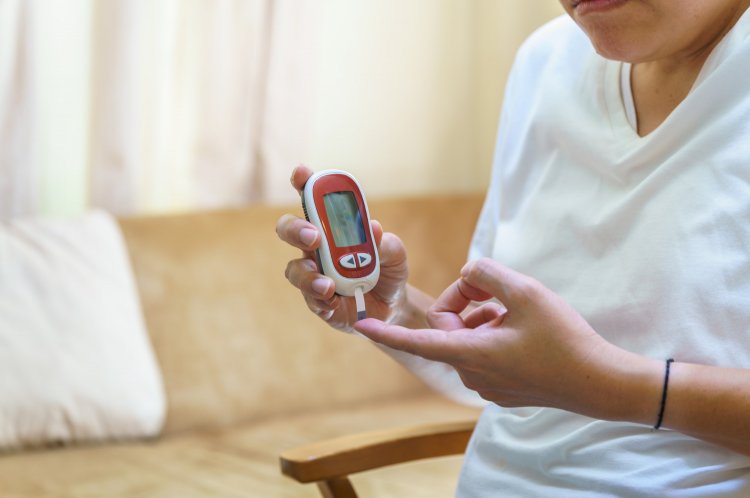Hypoglycemia (Glycemic Index): A Comprehensive Guide
Hypoglycemia, commonly referred to as low blood sugar, is a condition characterized by a decrease in the concentration of glucose in the blood below normal levels. Glucose is the primary source of energy for the body's cells, and maintaining optimal blood sugar levels is essential for overall health and well-being.

Understanding Hypoglycemia
Hypoglycemia can occur for various reasons, but it is most commonly associated with diabetes treatment, particularly when too much insulin or diabetes medication is administered. However, hypoglycemia can also occur in individuals without diabetes due to factors such as prolonged fasting, excessive alcohol consumption, certain medications, hormone deficiencies, or underlying medical conditions affecting the liver, kidneys, or pancreas.
Symptoms of Hypoglycemia
The symptoms of hypoglycemia can vary depending on the severity of the condition but often include:
- Sweating
- Trembling or shakiness
- Rapid heartbeat
- Paleness
- Hunger
- Fatigue or weakness
- Irritability or mood changes
- Difficulty concentrating
- Blurred vision
- Headaches
- Confusion
- Seizures (in severe cases)
- Loss of consciousness (in severe cases)
Causes of Hypoglycemia
Understanding the underlying causes of hypoglycemia is crucial for effective management. Common causes include:
- Excessive insulin or diabetes medication
- Delayed or missed meals
- Inadequate carbohydrate intake
- Strenuous physical activity without adequate fueling
- Alcohol consumption without food
- Certain medications, such as those used to treat diabetes, beta-blockers, or quinidine
- Hormonal deficiencies, such as adrenal insufficiency or growth hormone deficiency
- Liver, kidney, or pancreatic disorders affecting glucose regulation
Diagnosis of Hypoglycemia
Diagnosing hypoglycemia involves a combination of clinical evaluation, symptoms assessment, and laboratory tests. Physicians typically measure blood glucose levels using a glucometer or laboratory analysis. However, diagnosing hypoglycemia can be challenging, as symptoms may mimic other medical conditions or occur at varying blood glucose thresholds depending on individual tolerance levels.
Treatment of Hypoglycemia
The primary goal of hypoglycemia treatment is to promptly raise blood sugar levels to prevent or alleviate symptoms. Treatment strategies may include:
- Consuming fast-acting carbohydrates, such as glucose tablets, fruit juice, or regular soda
- Eating a balanced meal or snack containing complex carbohydrates, protein, and healthy fats to sustain blood sugar levels
- Adjusting insulin or diabetes medication dosages under medical supervision
- Using glucagon injection kits for severe hypoglycemia episodes when the individual is unable to consume carbohydrates orally or loses consciousness
Understanding the Glycemic Index (GI)
The glycemic index (GI) is a numerical scale that ranks carbohydrates based on their potential to raise blood glucose levels compared to a reference food, typically pure glucose or white bread. Foods with a high GI are rapidly digested and absorbed, causing a quick spike in blood sugar levels, while foods with a low GI are digested and absorbed more slowly, resulting in a gradual and sustained release of glucose into the bloodstream.
Hypoglycemia is a complex medical condition that requires careful management and attention to detail. By understanding the causes, symptoms, diagnosis, and treatment options for hypoglycemia, individuals can take proactive steps to prevent episodes and maintain optimal blood sugar control. Additionally, incorporating knowledge of the glycemic index into meal planning can help individuals make informed dietary choices to regulate blood sugar levels effectively and promote overall health and well-being.
Disclaimer
The information provided in this article is for educational purposes only and should not be considered medical advice. If you have any health concerns or are experiencing symptoms, it is important to consult with a healthcare professional, such as a doctor or clinic, for proper diagnosis and treatment. Always seek the advice of your doctor or other qualified health provider with any questions you may have regarding a medical condition. Do not disregard professional medical advice or delay in seeking it because of something you have read in this article.
Hashtags
#Hypoglycemia #DiabetesManagement #Health #BloodSugar #MedicalAdvice #GlycemicIndex #HealthTips
What's Your Reaction?





















